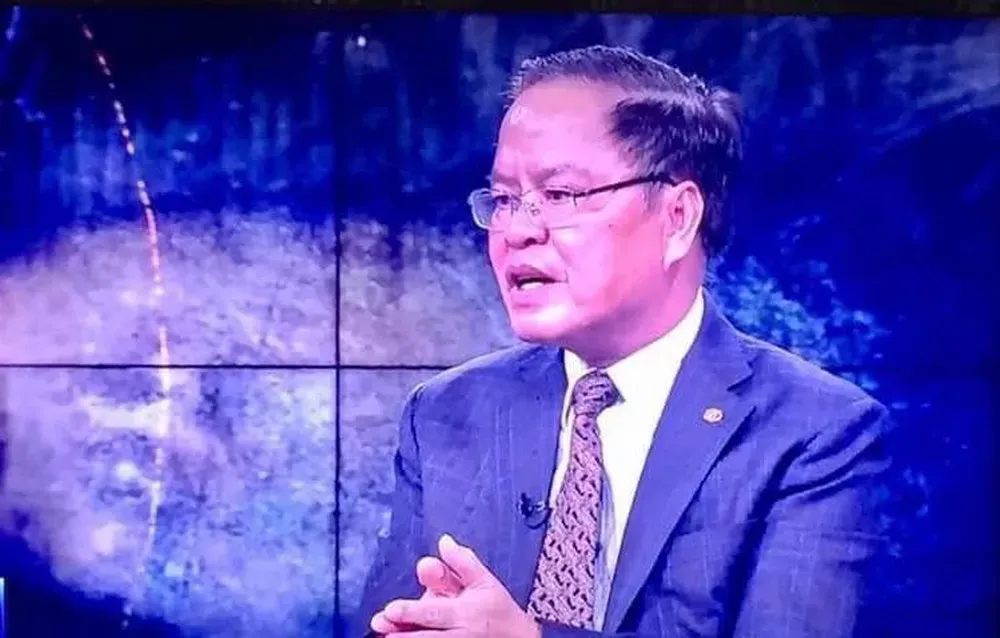Russian-Ukrainian armed conflict: A story of broken trust
Strategic trust could be built on the condition that both sides respect each other, and their aspirations.
Russia and Ukraine, the two neighboring countries sharing a common origin and people, should have extremely firm relations that are built by strategic trust.
Unfortunately, the trust has been ruined and damaged in an unexpected way – military attacks. International commentator Pham Phu Phuc, a former Vietnam News Agency resident correspondent in the United Nations, shares with The Hanoi Times on the issues.
Phuc said the armed conflicts launched on February 24 resulted from broken trust.
| International commentator Pham Phu Phuc, a former Vietnam News Agency resident correspondent in the United Nations. |
Negotiations and prospects
What do you think about the scale of the attack following the development of the Russia-Ukraine clashes?
Regarding the statements of the two sides, Russia affirmed it will continue the special military operation until Moscow achieves its stated goal: demilitarization of Ukraine, protecting Russia from Western threats; Ukraine must commit not to joining NATO while the NATO side will pledge not to admit Ukraine.
The fact that increased sanctions against Russia by the West and US also contribute to escalating the situation.
On the other hand, the early negotiations and the introduction of certain common understandings through rounds of talks have signaled the possibility of preventing the conflict from expanding.
How long will it take to see the impact of sanctions and how strong is Russia’s resilience?
The US and the West have deployed sanctions against Russia in terms of politics, economy, finance and banking, culture, sport, and indirect military measures such as sending military aid to Ukraine.
Such sanctions cause direct and lasting effects if not removed. The air embargo or the removal of Russia from the Society for Worldwide Interbank Financial Telecommunication (SWIFT) begin to have an immediate impact, while measures in the arts and culture sector will have a long-lasting impact if not lifted.
In terms of economics, Russia is more resilient to punitive sanctions than other embargoed countries. Specifically, economic and trade relations with the West are not the mainstay in the Russian economy. Its largest trading partner, China, also accounts for only 21.8% or US$335 billion of Russia’s total exports in 2020.
In addition, Russia’s economic structure is diversified with a wide range of trading partners, but not centered in the West. In particular, Russia’s oil and gas account for 12% of the world’s crude oil output. In addition, Russia supplies 30% of gas to Europe while the shipping fee from Russia to Europe is much cheaper than from the US and Canada.
What do you think about the significance of Russia-Ukraine negotiations and prospects for further rounds?
The fact that the two sides agreed to sit down for negotiations just a few days after the attacks is an encouraging signal.
Moreover, they were proactive and independent in opinion during the negotiations. The gesture of goodwill is essential, reflecting the position and objectives desired by both.
The prospect of upcoming negotiations depends on developments on the battlefield. But it seems that both Russia and Ukraine are willing to prioritize negotiations. Although the post-negotiation results were not disclosed, both sides confirmed they reached common points, including a ceasefire and ensuring a safe humanitarian corridor to allow civilians to flee Ukraine.
Next rounds of negotiations might be held with a focus on addressing concerns and goals of each side, for example, Russia’s security in relation to NATO or Ukraine’s worries about being held back and prevented from development.
| A Ukrainian man stands in the rubble in Zhytomyr following a Russian missile strike. Photo: AFP/VNA |
Loss of strategic trust
It seems that losing strategic trust has brought the situation to tensions. Could you share your opinion on this?
The strategic trust between Russia and Ukraine should have been extremely firm and growing because the two countries share the same ethnic background and experienced years under the Soviet Union.
Unfortunately, it was eroded soon after the collapse of the Soviet Union. A pro-Russian government in Ukraine after the collapse of the Soviet Union was overthrown. The succession of pro-Western and anti-Russian governments was established, such as that of current President Volodymyr Zelensky.
The trust became hurt when Ukraine openly expressed its desire to join NATO after Russia annexed Crimea and Russia supported the separatist government in the Donbas region. It’s like a little spark would start a fire someday.
In October 2021, Russia learned that Ukraine had used a Turkish-made Bayraktar TB2 drone, a very modern kind, to spy on the Donbas region. Efforts to mediate by the West, especially France, cooled off the tensions. However, the matter continued to heat up after the US and the West introduced sanctions against Russia. In the next move, Russia deployed 100,000 troops on the Ukrainian border and sent troops into Ukraine on February 24, destroying the strategic trust.
How can strategic trust be built and strengthened between countries in the current context, especially between Russia and the West?
Starting from scratch is always a tough mission, but not impossible. Goodwill and a positive constructive attitude can help Russia and Ukraine start over on conditions of respecting each other, especially security.
Restoring trust between Russia and the West is even a harder task because Russia and the US have long been at odds. That trust might be rebuilt by Russia and America’s European allies – the NATO member states in Europe.
In particular, the Ukraine issue needs to be thoroughly resolved on the basis of ensuring the interests of the parties, which will be the starting point to restore trust between Russia and the US - Europe.
Thank you so much!


.jpg)










